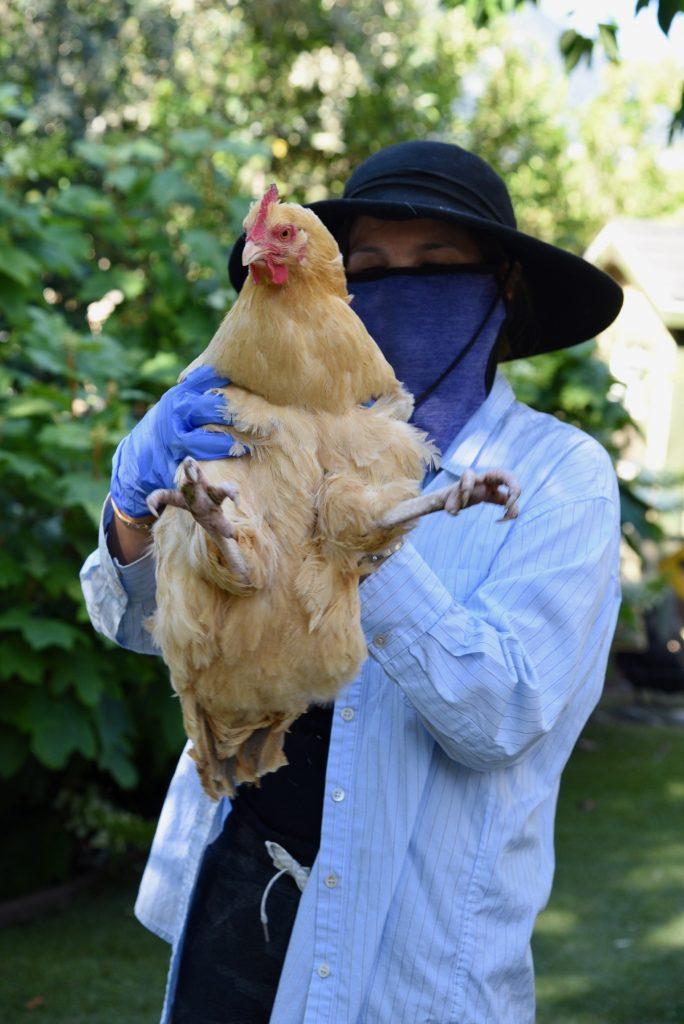While most students were scrolling through their phones at home, junior Nicholas Shinghal spent his afternoons herding baby pigs in his backyard. The piglets hated being picked up, so the only way to get them back into their pen was by chasing the tiny piglets back into the garage where Shinghal and his family took care of them until they grew enough to be moved onto their farm.
The increased screen time and seclusion has led many to seek an escape from technology and to disconnect from the overwhelming reality of the pandemic. A few Palo Alto High School families, such as Shinghal’s, have renewed their connection with nature by stepping back from suburban Palo Alto life and spending time on family-owned farms.
“We wanted our farm to have a positive impact on the environment, rather than a negative one just for our enjoyment,”
— Nicholas Shinghal, junior
Story continues below advertisement
Frog Dog Farms
Frog Dog Farms — a 13-acre farm in Petaluma — is the Shinghal family’s passion project established in November of last year.
“My mom has always been into animals, and the farm is an opportunity to get away from the commotion of Palo Alto, … enjoy nature and give back to it by maintaining the land and the animals on it,” Shinghal said.
The farm is currently home to pigs, chickens, goats, ducks and geese, and Shinghal’s family hopes to eventually add miniature cows and sheep to the menagerie.
One of the Shinghal family’s main goals was to ensure its sustainability and guarantee that their endeavors were in harmony with existing wildlife in the area while contributing back to the natural ecosystem.
“We wanted our farm to have a positive impact on the environment, rather than a negative one just for our enjoyment,” Shinghal said.
Shinghal values the time and effort spent building up the farm and appreciates how the farm has encouraged him to connect with his family in a new way.
“I think it has been an important experience for us to not only connect with the farm and … our time up there, …. but also having a communal family project to work on,” Shingal said.
Anderson Orchards
Anderson Orchards, a 60-acre lot growing peaches and almonds in Butte County, has been owned by senior Senja Johnson’s family for over 100 years. While Johnson usually visits in the summer, she prolonged her stay at the orchard during the pandemic.
“When COVID started, I just went there because there were … only two COVID cases there as opposed to the Bay Area, where there were way more,” Johnson said. “I lived there for three months [with my family].”
Johnson said upkeep for the orchard is not easy, and requires year-round maintenance and preparation for the busy summer season, during which she helps harvest the orchard’s peaches and almonds alongside her cousins and the farm’s staff.
According to Johnson, being on the orchard has lessened her dependency on her connection to her phone and the Internet. While she does not completely go off the grid, Johnson says being in nature with her family helps her take a step back from her electronics.
“I don’t have a whole lot of interest in my phone or my computer [when I am on the farm],” Johnson said. “I definitely like to disconnect more.”
FARM FRENZY — Junior Nicholas Shinghal and senior Senja Johnson share snippets of their lives in their families’ outdoor ventures. Both Johnson and Shinghal enjoy the opportunity to escape the suburban lifestyle in the form of their family farms. “The farm is an opportunity to get away from the commotion of Palo Alto,” Shinghal said.





